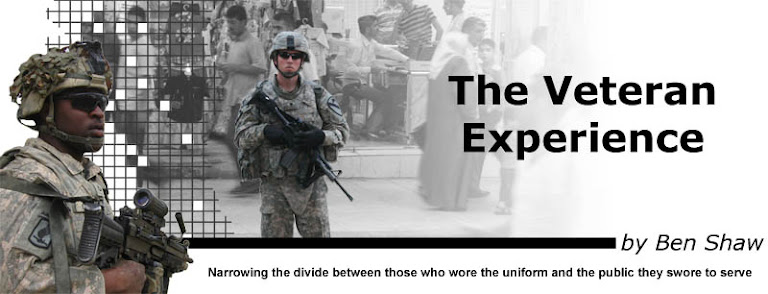There are a few men who, at war, having breathed the reek of death, which at times they inflicted and at other times they observed befall the innocent; having lost brethren on foreign soil for the sake of millions never met; having grasped heavy swords and wielded them in duty and steadfast service to their country, disavowing hope and expecting a quick demise; acting fearlessly and fearfully, and seeing hell that others may never even view it from afar, return forever changed and irrevocably unable to recreate what they once were. “Part of me died over there,” said one. It was innocence. Yet it wasn’t enjoyed until it was lost; a sacrifice that prevents a reintegration into everything they so nobly fought to uphold. They occupy the fringe of society.
Any border town perched between a peaceful nation and a violent neighbor will be filled with the strangest of characters and outcasts. The same applies to the borders of society. There are hardened criminals evading the law and relishing a quick retreat to the safety of outright crime. They gave up their place in society. There are also law enforcement who struggle vainly to keep the violence localized and in check. They fight from within society, and it’s wearisome. A few citizens try to navigate the inconvenience of perpetual suspicion or danger, yet most move further from the border at the nearest opportunity. One other quiet group exists: the Keepers. They are there of their own accord.
It is their curse to be on that border, but it also their honor. It is their passion, really. Love of a society they cannot fully enjoy, but only peer in the windows and yearn to someday enter. Yet that is secondary to the call and their purpose for occupying that border. Somebody needed to do it, and they volunteered.
They don’t like it there, but there is nowhere else for them. Any relocation into society sends them quickly packing for the border once again. Nobody understands them. Nobody particularly wants them, and their attitude is more morbid than most can tolerate. They are feared, if nothing else for whatever latent skills they possess – exhibited or not. Their place, though they may wish it, is within society, but they will find no comfort there. Having grasped the sword once, they will forever carry it – and wield it. Yet their actions are strictly for those within the borders. They were there once and didn’t appreciate it, and now, relegated to the perimeter, they sadly turn their back on their greatest love to face instead whatever comes at them from without.
They are self-destructive, usually, because there’s little entertainment on the border and they don’t expect to live long anyway. Their habits won’t kill them; their calling will. The habits permit a temporary escape back towards the society they miss. The alert warrior is replaced with stumbling fool who, but for a moment, finds companionship among the revelers, but awakens once again the warrior – and still on the border.
The Latin word baiulus is defined as, “porter, pall-bearer, carrier of a burden; steward;” and indeed this title is befitting. These Keepers are baiuli: porters of the burden of loneliness and self-banishment. Pall-bearers of their deceased, but not-yet-interred innocence. They will carry that gently until the rest of them dies. Their stewardship is to their country.
Every day on this frontier solidifies the conviction that there is no other place for them. Every well-handled incident is further proof that this is where they belong. Every tragedy serves as a reminder that they’d rather be anywhere but there. But duty holds them there, for there is certainly no benefit to self, only great satisfaction in having answered the call, however difficult it proved to be. There is no defeat but to retreat, and that is never an option. They will fall where they stand, because they stand where they are meant to be.
But for these few it is miserably lonely. Life is abbreviated, steeped in loss with little gain, and devotion to the cause prevents much pursuit of other dreams. What they do is so others can dream. Before them lies fear, oppression, bondage and destruction. To their backs, though never fully experienced, rests freedom, peace, and safety. Also to their backs is home and country – yet they will never go there. They wait quietly, weary and at times haggard; swords sheathed but hands on the hilts, watching outward for sight of the next aggressor. They are expecting him soon but ready for him now. While they will never be home, it is worth their lives to preserve it. They loved it, and they still love all those who dwell there. Only a profound love can keep them where they are. Dream for them, for they cannot.
Nos Baiuli.
Copyright © 2009, Ben Shaw
All Rights Reserved
www.byshaw.com

No comments:
Post a Comment